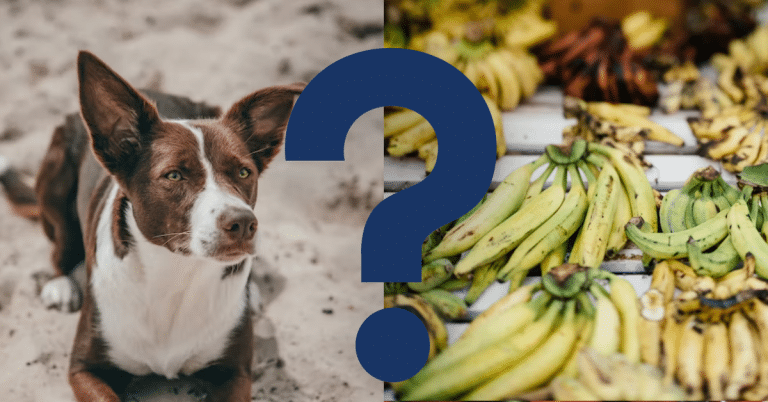Can Dogs Eat Cheddar Cheese? A Vet’s Opinion

The kind of cheese known as Cheddar was first produced in the Somerset, England settlement of Cheddar, but can you feed cheddar cheese to your dog?
Yes, in moderation, dogs can eat cheddar cheese. Dogs may normally eat cheddar cheese, but it should only be given occasionally as a treat and in tiny doses. Cheddar cheese may be a favourite among dogs, but it’s vital to remember that it contains a lot of fat and calories. A diet high in cheese might cause digestive problems like diarrhoea or stomach distress. A veterinarian should always be consulted before adding new food to your dog’s diet.
Benefits Of Cheddar Cheese For Dogs
Dogs can occasionally appreciate cheddar cheese as a treat, but it’s crucial to remember that it should only be given seldom because of its high-fat content. The following are some possible advantages of cheddar cheese for dogs:
Protein
Cheddar cheese has a good quantity of protein, which is necessary for dogs to develop and repair tissues. The maintenance of a healthy coat and the promotion of general growth and development both depend on protein.
Calcium
Cheddar cheese is an excellent source of calcium, which is necessary for dogs’ solid bones and teeth to remain in good condition. For developing pups and older dogs more likely to experience bone-related problems, adequate calcium intake is crucial.
Flavorful Treat
Cheddar cheese is a tasty treat that dogs frequently like, making it a good tool for training or just as a treat now and again. It can be a valuable treat to encourage and support good behaviour.
Mental Stimulation
Dogs can benefit from cerebral stimulation from chewing on cheddar cheese. It stimulates their senses and can help them feel less anxious or bored.
Moisture Content
Some dogs might find it challenging to drink enough water each day. Giving them little cheddar cheese as an occasional treat can give extra moisture and keep them hydrated.
Vitamin B12
Vitamin B12 in cheddar cheese is essential for dogs’ brain health, red blood cell production, and nervous system health.
Probiotics
While not all types of cheddar cheese have probiotics, some speciality varieties can have good bacteria. These can support the development of a balanced gut flora, which supports good digestion and immune system performance.
Despite these possible advantages, it’s crucial to use caution while giving dogs cheddar cheese. Eating high-fat foods might cause weight gain, pancreatitis, or digestive problems, particularly in dogs with underlying medical disorders. Always check with your vet to ensure the treatment suits your dog’s needs, and introduce new meals gradually to check for any negative responses.

How To Safely Give Cheddar Cheese To Dogs
It’s crucial to feed dogs cheddar cheese responsibly and in moderation. Here are comprehensive instructions on how to offer cheddar cheese to your pet safely:
Consult A Veterinarian
It would be best to speak with a veterinarian before adding new foods, including cheddar cheese, to your dog’s diet. They can advise based on your dog’s medical requirements, dietary restrictions, and allergies.
Select High-Quality Cheddar Cheese
Select high-quality cheddar cheese free of preservatives, synthetic flavours, and excessive salt. Avoid spiced or flavoured kinds since they could have components like onions or garlic that are toxic to dogs.
Start With Small Amounts
As a test, give your dog a bit of cheddar cheese. Keep an eye out for any indications of discomfort, stomach problems, or allergic reactions in their response. You can progressively raise the serving size if there are no adverse effects but always consume in moderation.
Watch Portion Sizes
Cheddar cheese shouldn’t be a regular part of your dog’s diet. It should only be given sometimes as a treat because it contains a lot of fat. Frequent eating might cause weight gain and digestive problems. As a rule, keep the serving size to a little cube or thin slice.
Take Into Account The Dog’s Weight And Overall Health
Dogs who suffer from pancreatitis or obesity may need to avoid or consume less cheddar cheese. Dogs who are lactose intolerant or allergic to dairy products shouldn’t eat any cheese at all. Consider your dog’s weight, general health, and dietary restrictions.
Avoid Sharing Human Meals Containing Cheddar Cheese
While cheddar cheese may be acceptable for dogs in moderation, avoiding sharing human meals is crucial because they may contain toxic elements, such as bread, crackers, or seasonings.
Use Cheddar Cheese As A Training Aid
Cheddar cheese is a good training aid that may be used to reinforce good behaviour. Cut little pieces into bite-sized training treats or incorporate them into interactive treat-dispensing toys to intellectually stimulate your dog.
Store Properly
Cheddar cheese must be stored properly to keep its freshness and avoid spoiling. If you have cheddar cheese at home, ensure it is kept safely in a cool location. To prevent them from helping themselves to an excessive amount, keep it out of your dog’s reach.
Keep in mind that each dog has unique dietary requirements. To decide whether cheddar cheese is suitable and safe for your dog, it is always better to speak with a veterinarian familiar with their medical history.
Will Cheddar Cheese Make A Dog Sick?
If a dog consumes cheddar cheese in large quantities or has specific medical issues, it could ill the dog. Here are some things to think about:
Lactose intolerance: Dogs are usually lactose intolerant, which means they lack the enzymes needed to break down lactose, commonly found in dairy products like cheese. Cheddar cheese consumption can cause digestive problems like gas, diarrhoea and bloating.
High-Fat Content: Cheddar cheese has a comparatively high-fat content. Consuming too much fat might cause digestive problems in dogs, including pancreatitis, which is characterised by pancreatic inflammation. Vomiting, diarrhoea, appetite loss, and abdominal discomfort are just signs and symptoms of pancreatitis.
Obesity and Weight Gain: Regular or excessive ingestion of cheddar cheese might result in weight gain in dogs due to its high calorie and fat content. Diabetes, heart disease, and joint difficulties are just a few health complications obesity can cause.
Allergic reactions: Although uncommon, some dogs may experience allergic reactions to dairy products like cheddar cheese. An allergic reaction may cause itching, vomiting, breathing difficulties, skin rashes and diarrhoea. Discontinue the cheese and get advice from a veterinarian if your dog exhibits any symptoms of an allergic reaction.
It’s recommended to refrain from giving your dog cheddar cheese in the future if they exhibit any signs of stomach distress or discomfort. Before adding any new food to your dog’s diet, always check with your veterinarian, especially if your dog has pre-existing medical concerns or is prone to allergies or digestive problems. A professional can offer tailored advice based on your dog’s unique requirements and current state of health.
Can dogs eat cheddar cheese variations?
Cheddar cheese varieties are safe for dogs to consume, but it’s vital to consider the individual ingredients and flavours added to those variations. Here are some things to remember:
Natural cheddar cheese variations: Dogs can safely eat cheddar cheese varieties manufactured from natural components without the addition of any dangerous additives. These are cheddar cheeses that are matured, sharp, or mild without any added seasonings or flavours.
Avoid Dog poisonous substances: Some varieties of cheddar cheese may include dog-poisonous or dog-dangerous substances. For instance, some varieties of cheddar cheese could contain flavours like garlic, onions, or other ingredients that are poisonous to dogs and should be avoided.
Watch Out for Too Much Salt: Some cheddar cheese varieties, such as flavoured or spiced, may include more salt. Dogs who consume too much salt may get dehydration, electrolyte imbalances, and kidney difficulties. Pick cheddar cheese varieties with a low to moderate salt content wherever possible.
Consider Individual Sensitivities: Different varieties of cheddar cheese may cause allergies or individual sensitivities in dogs. Keep an eye out for any adverse effects your dog may experience after taking a particular variant, such as gastrointestinal distress, skin problems, or allergic responses. If any unfavourable symptoms appear, stop feeding that specific variety.
Moderation is Important: Giving dogs cheddar cheese in moderation is essential, regardless of the variety. Cheddar cheese, in all its varieties, is heavy in fat and calories, which, if consumed in excess, can cause weight gain, digestive problems, or other health problems.

Vet’s Summary
Cheddar cheese can be safely given to dogs occasionally as a treat, but it should only be given in moderation because of its high fat content. Cheddar cheese’s protein, calcium, and vitamin B12 may benefit dogs. Before introducing cheddar cheese to a dog’s diet, it is crucial to consider any allergies, sensitivities, or specific medical concerns they may have. Cheddar cheese should be avoided or consumed in moderation by dogs who are lactose intolerant, overweight, or have a history of pancreatitis. Examining the contents before serving some cheddar cheese versions is essential because they could contain toxic substances for dogs. To verify if feeding cheddar cheese is suitable for dogs, it is always advised to consult a veterinarian.
Recommendation: The owner should consider giving their dog probiotic pills in addition to cheddar cheese as an occasional treat. In dogs, probiotics can help maintain a healthy digestive system and gut flora. They may benefit dogs who frequently experience digestive problems, have sensitive stomachs, or take antibiotics. Dog-specific probiotic supplements can aid in promoting healthy digestion, improving nutrient absorption, and supporting overall gut health. However, as individual needs differ, it’s crucial to speak with a veterinarian to decide on the dog’s right probiotic supplement, dosage, and administration period.
Videos To Watch
If you are wondering what related foods are good to give your dog, watch this:
And if you want to know what a dog can NOT eat, watch this:






